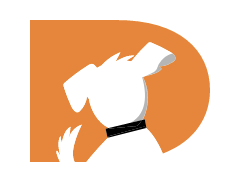2 min read
How To Help Your Dogs Adjust When You Go Back To Work After COVID-19
Beke : May 18, 2020 11:59:00 PM
We’ve spent lots of time teaching our pets how to adjust to us living at home during the long global Covid-19 quarantine. Now that states are relaxing their quarantine restrictions, our pets will soon be adjusting to us moving back into the workplace.
This can create a lot of stress in our pets who have become accustomed to having us around the last month or two.
We’ve got a few tips on how you can help your pets adjust to work life.
Help Your Dogs Adjust When You Go Back To Work After COVID-19
1. Watch for Signs of Stress
Your dog is likely to experience anxiety about your new work schedule. These signs can include:
- Barking, howling or whining when you leave (not just in response to noises outside of the home), especially for longer than a minute or so.
- Scratching or chewing at entrances and exits (doors/windows)
- Destructive behavior that only happens when the dog is alone
- Over-grooming or other self-harm or obsessive behaviors
- A change in appetite
Monitor your pets through video cams that notify you of changes in behavior. There are many available that are noise-sensitive and some that even allow you to interact with your pets from work.
If you do see that your dog is having a tough time adjusting, you can manage their anxiety by doing the following:
2. Begin Adjustments Now
Teach your pet to manage their anxiety on their own. Your dog has learned how to stay active indoors with the family being home over the past few months, now he needs to learn how to stay active on his own.
Get him back into a schedule by leaving the house for short periods of time without them. Run your errands (but remember that many locales still have safety restrictions in place despite being opened). Then return home without ceremony.
3. Create A Safe Place
Your dog should have an area that is all his or her own. This may be a separate room or crate, or even just a comfortable and quiet corner of the room that they have claimed.
4. Enrichment
Teach your pets how to stay independently busy with enrichment ideas that both stimulate their minds and calm their fears. These may include a stuffed Kong toy, a feeding puzzle or just a game of hide and seek where they learn how to hunt for their food during the day.
5. DOGTV
Leave your TV on when you’re away for some fun interaction! DOGTV is proven to reduce stress and assist in eliminating destructive behavior by keeping your pets entertained. Sign up for a FREE seven-day trial here.
